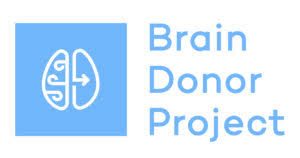While research of Smith-Magenis Syndrome is slowly moving forward on several fronts, there is a need for more expansive study of the neuroscience of SMS. The impact of this specific type of research is immeasurable and may lead to more treatment options through better understanding of the syndrome.
How is this specific research accomplished? It is reliant on brain donation.
There is currently an urgent need for brain donation for a variety of neurological disorders, such as Smith-Magenis Syndrome. Breakthroughs in neuroscience require this precious resource, for which there simply is no substitute.
While this is a very difficult and sensitive topic, it is imperative that families understand the need for brain donation and its importance in the future research of SMS. Brain donation occurs upon death and pre-arrangements can be made to ensure that the family’s wishes are upheld and that the process is as easy as possible.
 PRISMS has partnered with the Brain Donor Project as a resource for families who wish to take steps towards brain donation.
PRISMS has partnered with the Brain Donor Project as a resource for families who wish to take steps towards brain donation.
The Brain Donor Project is an innovative national, non-profit organization that was developed to support the National Institutes of Health (NIH) in making available high quality, well-characterized brain tissue for neurologic researchers. The focus is on raising awareness of the critical need for this valuable tissue and on simplifying the process of brain donation upon death. Since the NIH has identified this need, and created the NeuroBioBank to supply the tissue to researchers, the Brain Donor Project is eager to help people understand what is at stake.
The video below helps to explain how the Brain Donor Project works.
More has been learned about the human brain in the last 20 years than in all of recorded history, but there is so much yet to discover, especially when it comes to complex disorders like Smith-Magenis Syndrome.
Your help is needed to push research forward.
You may not be aware that…
- Signing up to be an organ donor does not mean the brain is included. Separate arrangements must be made for brain donation.
- Donating a body for anatomical study does not mean the brain will be used for neurological research. Again, separate arrangements are required.
- People who have not been diagnosed with a neurological disorder can also donate. Control brains are just as valuable.
- Brain donation is not disfiguring – an open casket is still an option.
- There is no additional cost to the family for brain donation when donating through the Brain Donor Project.
Starting the process is simple. Please go to braindonorproject.org to get answers to your questions about brain donation. When you’re ready to sign up, click on the “Sign Up” button at the top right and complete the online form. You may enroll for yourself, or on behalf of a loved one for whom you make decisions. The form asks mainly contact information and whether there was been a diagnosis of a neurologic condition. Medical records will later be used to verify any diagnosis.
Once the form has been submitted, you will hear from one of the brain banks within the NIH NeuroBioBank within ten business days. Consent and release forms will then be delivered, along with instructions for the family or whoever will be tasked with carrying out these plans at time of death. When that time comes the brain bank and the funeral home will coordinate to transport the body to a medical or mortuary location (at no cost to the family) for the brain to be retrieved and shipped. Time is of the essence at this point, so making arrangements to register in advance helps ensure that all of these arrangements can be accomplished as quickly as possible. The body is then released for whatever funeral arrangements will take place.
Thank you for considering this invaluable gift as a way to advance science for our SMS community. Together we are building a future of hope.


